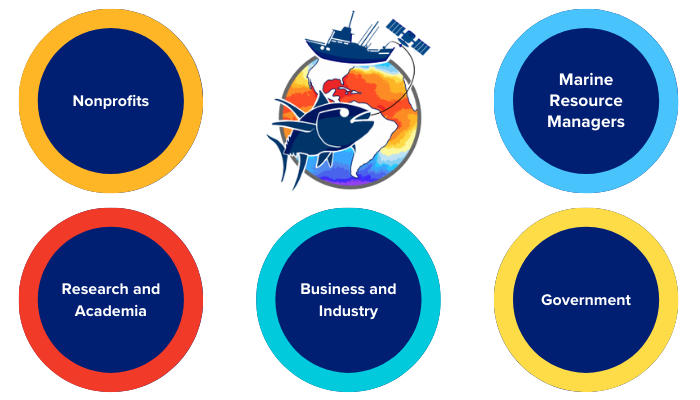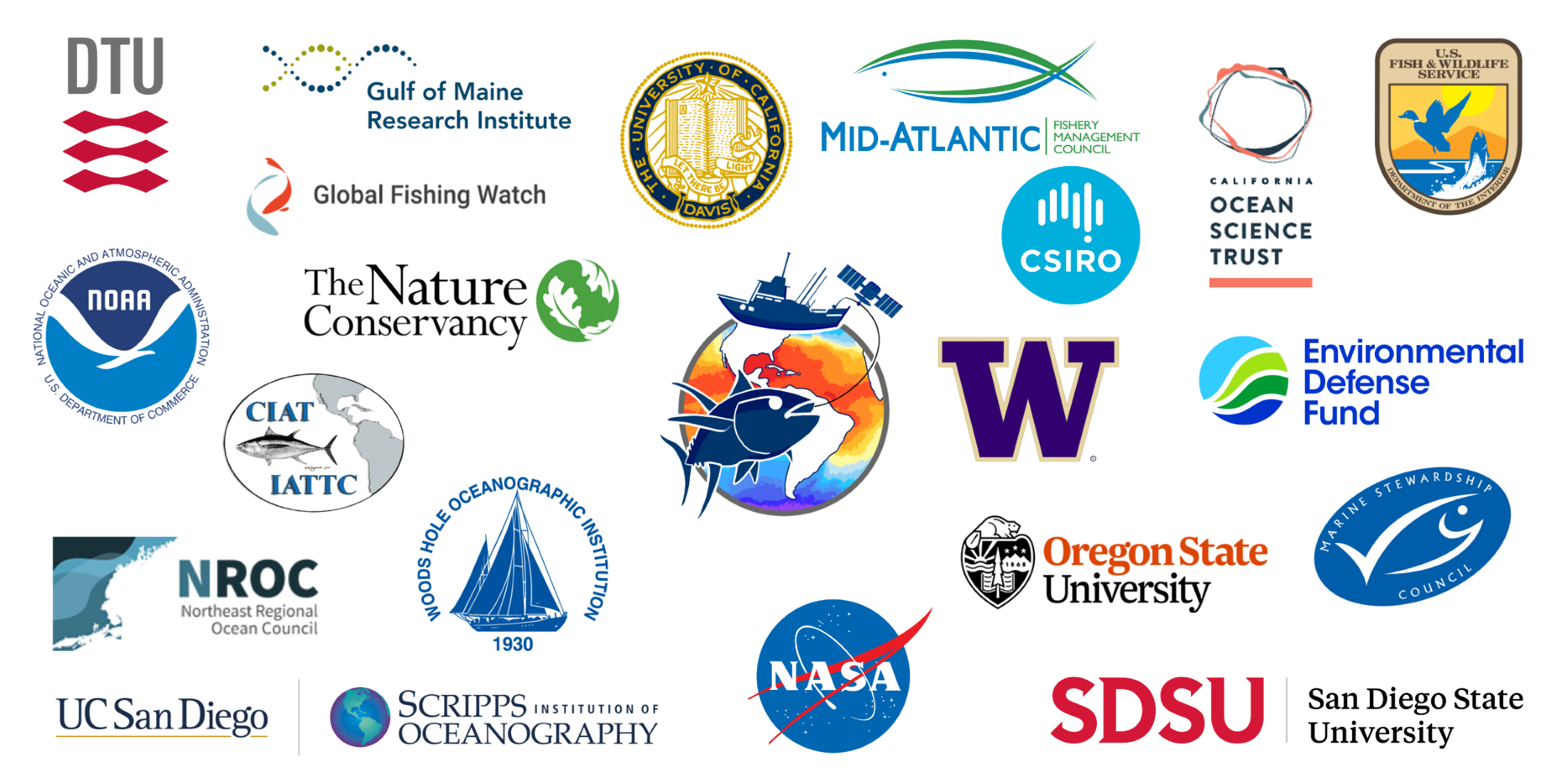FaCeT
Stakeholder Engagement
Meaningful stakeholder engagement is at the heart of FaCeT's work. From conception to implementation, we communicate and work closely with fishery stakeholders, emphasizing trust and transparency at every stage of our project.
Our commitment to meaningful engagement also shapes our communication strategy. We actively keep our stakeholder communities abreast of the team's findings, tools, and applications in development as well as FaCeT's future directions.
Partners and Stakeholders

FaCeT’s tools and ecological forecasting products are designed to provide stakeholders with needed information on biological and economic responses to, and impacts of, ocean anomalies and projected climate change.
Fueled by satellite data, climate models, fishery-independent and -dependent biological data, and vessel tracking data, FaCeT bridges the gap between management and climate science to provide critical applications that support climate readiness and ocean resilience.
Our partners and stakeholders include:

Researchers

Resource managers

Resource users

New Collaborations
FaCeT partners with several fishery agencies and organizations to develop tools and applications in support of climate-ready and sustainable fisheries. We value the opportunity to work closely with partners to ensure our science is impactful and directly addresses current challenges in fishery management.
If your organization or agency is interested in partnering with FaCeT, please contact Rebecca Lewison or Camrin Braun for more information.



